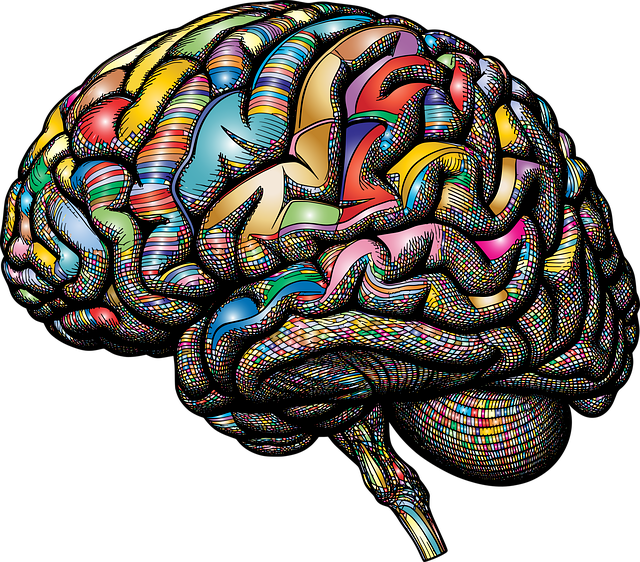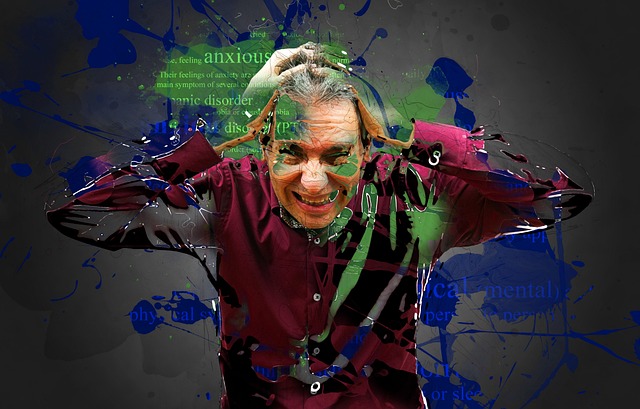The current mental illness diagnosis process faces challenges due to diverse conditions and subjective assessments, leading to misdiagnosis or delays. Online therapy platforms like Lone Tree Online Therapy offer revolutionary solutions by providing remote, accessible assessments using advanced tools and data analytics for accurate diagnoses. These platforms facilitate continuous monitoring through virtual check-ins, enabling early sign detection and tailored treatment plans. Recent advancements, including digital platforms, Empathy Building Strategies, Mental Wellness Coaching Programs, and Mental Health Awareness campaigns, have significantly improved diagnosis accuracy and patient outcomes. Specialized training programs like Lone Tree Online Therapy enhance therapist skills, fostering safe spaces for patients to disclose struggles accurately. Encouraging open communication and active patient involvement in care improves diagnosis precision and treatment effectiveness.
Mental illness diagnosis accuracy is a critical aspect of patient care, yet it remains a complex challenge. This article explores various efforts aimed at improving diagnostic precision, from understanding current challenges to leveraging innovative tools and techniques. We delve into the role of online therapy platforms, highlighting their potential as game-changers in accurate mental health assessments. Additionally, we discuss training programs, patient collaboration strategies, and recent advancements that collectively contribute to better diagnosis and improved outcomes in Lone Tree Online Therapy.
- Understanding the Current State: Challenges in Mental Illness Diagnosis
- Incorporating Online Therapy Platforms: A Game-Changer for Accurate Assessment
- Enhancing Diagnostic Tools and Techniques: Recent Innovations
- Training and Education: Equipping Professionals for Better Diagnosis
- Patient Collaboration: Encouraging Open Communication for Accurate Results
Understanding the Current State: Challenges in Mental Illness Diagnosis

The current state of mental illness diagnosis faces several challenges, highlighting a pressing need for improvement. One significant obstacle is the complexity and variability of mental health conditions themselves. Mental illnesses encompass a broad spectrum, from anxiety disorders to severe depression and psychotic disorders, each with its unique symptoms and manifestations. This complexity often leads to misdiagnosis or delayed diagnosis, as healthcare providers must navigate intricate clinical presentations.
Additionally, the subjective nature of mental health assessments poses challenges. Symptoms can vary greatly between individuals, making it difficult to establish consistent and accurate diagnostic criteria. The process is further complicated by social and cultural factors that influence how individuals express and perceive their emotional states, often leading to disparities in diagnosis across different demographics. Access to quality healthcare and specialized services, such as Lone Tree Online Therapy, plays a pivotal role in overcoming these hurdles. Stress Management Workshops Organization and initiatives focused on fostering positive thinking and emotional intelligence can also contribute to enhancing diagnostic accuracy by promoting mental wellness and self-awareness.
Incorporating Online Therapy Platforms: A Game-Changer for Accurate Assessment

Incorporating online therapy platforms is a game-changer in the pursuit of improving mental illness diagnosis accuracy. These platforms offer a convenient and accessible approach to therapy, enabling mental health professionals to conduct comprehensive assessments remotely. With Lone Tree Online Therapy, therapists can utilize advanced tools and techniques to evaluate patients’ emotional well-being, which is crucial for accurate diagnoses. By integrating various assessment methods, including questionnaires, video sessions, and data analytics, these platforms enhance the depth and breadth of information gathered, leading to more precise identification of mental health conditions.
Furthermore, online therapy platforms facilitate continuous monitoring and support, which are vital for risk management planning. Depression prevention strategies can be effectively implemented through regular virtual check-ins, allowing professionals to detect early signs and intervene promptly. This approach not only improves diagnosis accuracy but also contributes to effective treatment plans tailored to individual needs, ensuring better outcomes for patients.
Enhancing Diagnostic Tools and Techniques: Recent Innovations

In recent years, significant advancements have been made to enhance mental illness diagnosis accuracy. Innovations in technology and research are driving these efforts, with a particular focus on improving assessment methods and tools. One notable development is the integration of digital platforms, such as Lone Tree Online Therapy, which offer accessible and remote therapy options. These online therapy services not only expand access to care but also utilize advanced algorithms and data analytics to provide more precise diagnoses. By analyzing patterns in client interactions and behaviors, these platforms can identify subtle indicators of mental health conditions that might be missed through traditional face-to-face methods.
Additionally, the field is witnessing the growth of Empathy Building Strategies and Mental Wellness Coaching Programs Development, which aim to create a more supportive and nuanced diagnostic environment. Mental Health Awareness campaigns have also played a crucial role in destigmatizing mental illness, encouraging open conversations, and fostering an environment where individuals feel comfortable seeking help. These combined efforts are leading to better-informed diagnoses, tailored treatment plans, and ultimately, improved outcomes for those struggling with mental health challenges.
Training and Education: Equipping Professionals for Better Diagnosis

Mental illness diagnosis is a complex process that requires extensive training and education for professionals. To improve accuracy, many institutions are now focusing on enhancing the skills of therapists, counselors, and psychiatrists through specialized programs like Lone Tree Online Therapy. These programs often include comprehensive training in Mental Wellness Coaching, which equips practitioners with advanced communication strategies and emotional intelligence. By mastering these techniques, mental health professionals can better understand patient experiences, interpret symptoms more accurately, and tailor treatments to individual needs.
The development of effective communication strategies is a cornerstone of this education. It enables healthcare providers to create safe, non-judgmental spaces where patients feel comfortable disclosing personal struggles and intimate details. Additionally, emotional intelligence training teaches professionals to recognize and manage their own emotions while empathizing with clients. This multifaceted approach not only improves diagnosis accuracy but also fosters stronger therapeutic relationships, ultimately enhancing the overall effectiveness of mental health services.
Patient Collaboration: Encouraging Open Communication for Accurate Results

Encouraging open communication between patients and healthcare providers is a powerful tool to enhance mental illness diagnosis accuracy. Many individuals struggling with their mental health may have concerns or hesitations about sharing personal experiences, fears, or symptoms due to stigma, past traumatic experiences, or lack of trust. Building a collaborative relationship where patients feel heard, respected, and safe to express themselves freely is essential. Lone Tree Online Therapy offers a supportive environment for individuals seeking therapy, fostering honest dialogue that can lead to more precise diagnoses.
By actively involving patients in their care, healthcare providers gain valuable insights into their unique perspectives and personal contexts. This collaborative approach enables therapists or doctors to ask relevant questions tailored to each patient’s situation, consider cultural factors, and better understand the complexities of their mental health journey. Such a patient-centric method not only improves diagnostic accuracy but also boosts confidence in the treatment process, as individuals feel empowered to actively participate in managing their well-being. Additionally, regular check-ins and open lines of communication can aid in early detection of any emerging issues, allowing for timely interventions, especially for conditions like depression prevention.
The pursuit of enhancing mental illness diagnosis accuracy is an ongoing journey, and through incorporating innovative strategies like online therapy platforms (Lone Tree Online Therapy), advanced diagnostic tools, comprehensive training, and patient collaboration, we can navigate this complex landscape more effectively. By fostering open communication and leveraging cutting-edge resources, mental health professionals are better equipped to provide precise diagnoses, ultimately leading to improved treatment outcomes. These efforts collectively contribute to a more nuanced understanding of mental health, ensuring individuals receive the appropriate care they need.












